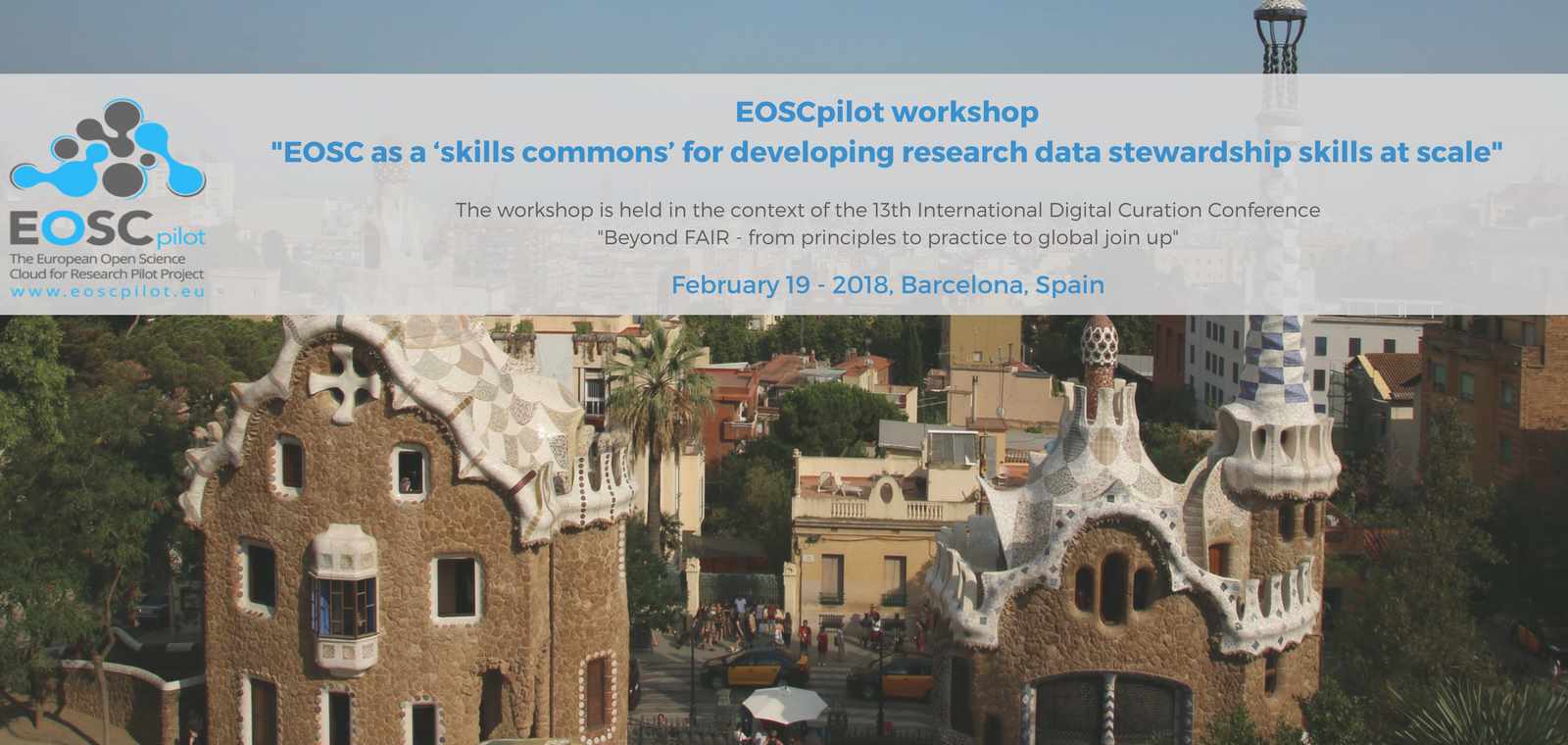
EOSC as a ‘skills commons’ for developing research data stewardship skills at scale
The workshop invites trainers and others concerned with skills development to shape the role of the European Open Science Cloud (EOSC) in building data stewardship skills capacity and recognition. Research institutions, domain-specific infrastructures and e-infrastructures all need to nurture skills to ensure research outputs are findable, accessible, interoperable and reusable (FAIR).
The workshop promotes dialogue between those with a cross-disciplinary skills remit and those with a more domain-specific focus. It will focus on issues around providing a ‘skills commons’ by offering FAIR training materials that fulfil needs for domain-focused examples, suitable for the variety of organisations and roles concerned. To stimulate discussion, we will describe our approach to stewardship competences and training approaches identified by the EOSCpilot project.
The European Open Science Cloud (EOSC) is an initiative from the European Commission to drive Open Science and provide researchers with a trusted virtual environment enabling open and seamless services for data storage, management, analysis, sharing, and re-use, across disciplines. This needs skills, both on the part of researchers and others involved in providing the services. Data stewardship is one of the key skill sets to enable the EOSC.
Stewardship involves professional development across various roles; from data managers, software engineers, to data scientists and researchers generally. Infrastructures, institutions and all kinds of organisation involved in research and its application need to develop stewardship skills to support data science and digital humanities, and to perform and apply research as openly as possible towards the innovation of new products and services. The EOSC will offer an environment to do just that. Its skills development agenda is being shaped by needs and gaps reported by the European Commission’s Open Science Skills Working Group, and articulated in the EOSC Declaration.
Since data stewardship is one of the most significant gaps, the EOSCpilot project is recommending options to address a number of issues in this area. These include: the relevant competences for the roles concerned; whether and how FAIR principles can be applied to training, and the scope of training-as-a-service in EOSC.
As the EOSC is taking shape now, we invite trainers and others interested in skills development to discuss these questions and other the key factors that help or hinder development of individual competences and capabilities for their users and their organisations.
| TIME | TOPIC |
|---|---|
|
9.30– 9.45 |
Introduction - Aims and structure of the event (DCC) |
|
9.45– 10.00 |
EOSCpilot Skills Framework - Stewardship skills and gaps in provision to support capabilities for data-intensive research and the services that underpin them (DCC, DANS) |
|
10.00- 10.15 |
Data Stewardship at 4TU - How institution-level research data support services are building stewardship expertise among researchers (4TU) |
|
10.15– 10.30 |
The EOSCpilot training-as-a-service – Scope of training infrastructure and options to recommend for EOSC (DCC) |
|
10.30– 11.00 |
Coffee break |
|
11.00– 11.45 |
Breakout groups - Each group will run 45 minutes, participants can choose to stay or swap. Group1. How can EOSC support research training providers to contribute to international level training infrastructure? Questions:
Group2. How can EOSC assist institutions and research performing organisations to develop the competences and capabilities for open data science? Questions:
Group3. How can EOSC coordinate national-level policies, strategies and reward mechanisms to stimulate open research data practices? Questions:
|
|
11.45 – 12.30 |
Conclusions and Discussion (45 mins) how can the EOSC help Research Institutions, Libraries and Infrastructure work to close stewardship skills gaps? |
The workshop will be held at IDCC18 in Barcelona, registration is open.
